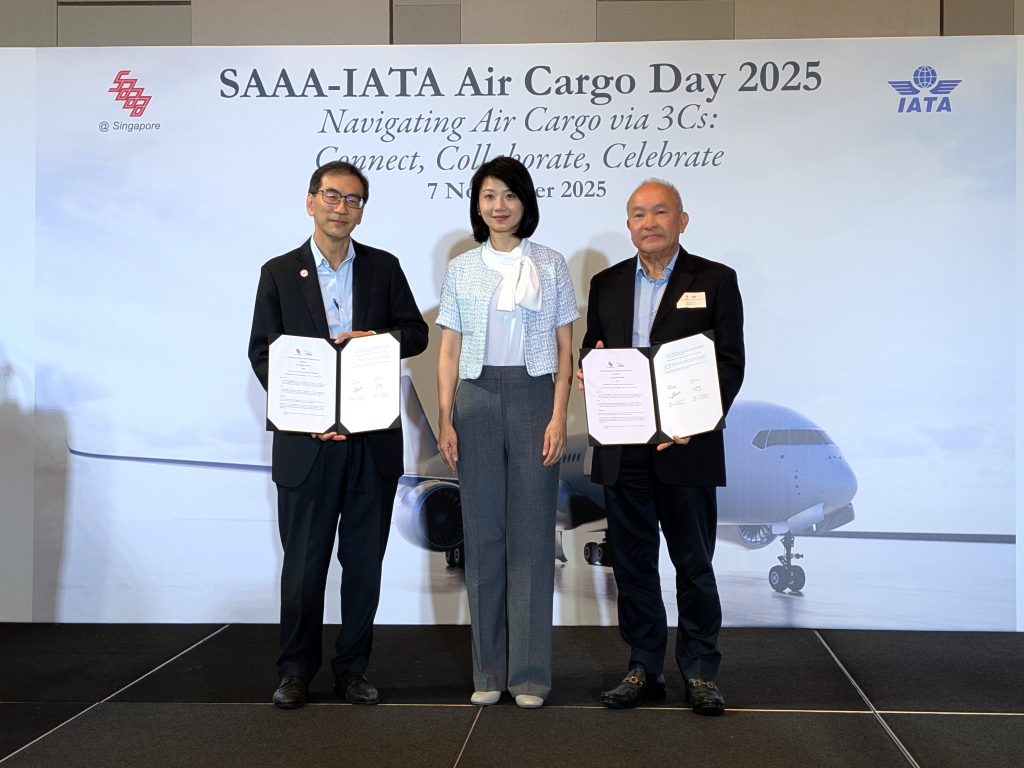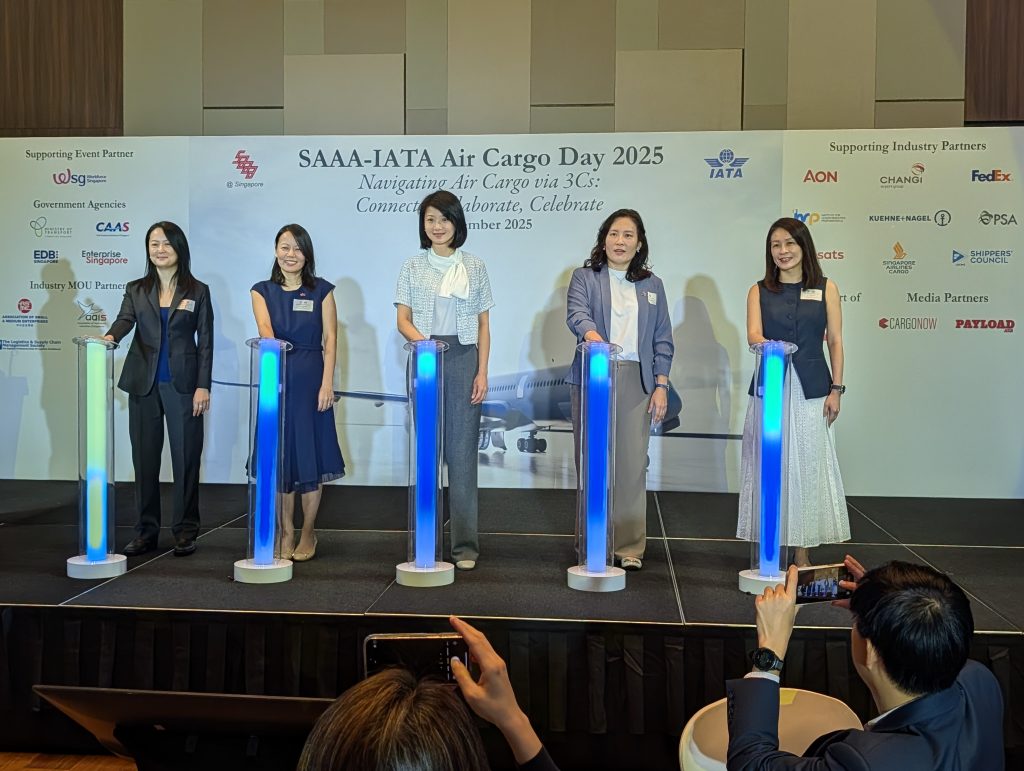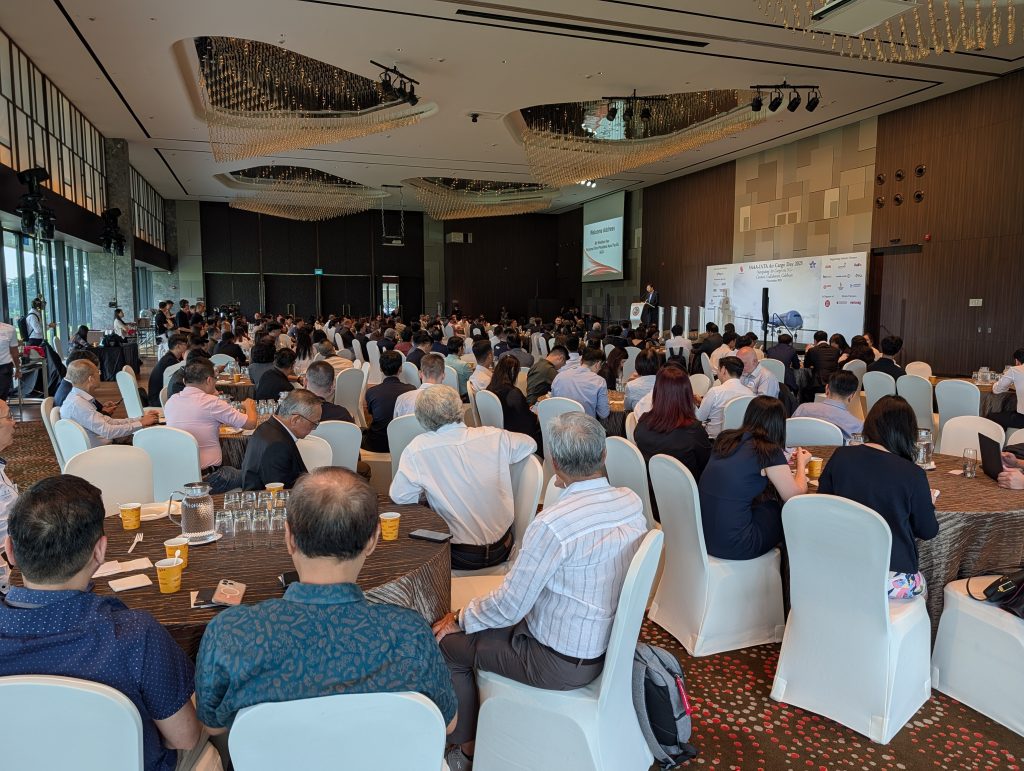AAIS recently signed a Memorandum of Understanding (MOU) with SAAA@Singapore (formerly the Singapore Aircargo Agents Association) to foster closer collaboration and engagement opportunities between the aerospace and air cargo communities.
The partnership will open new avenues for exchanges, learning and networking through joint seminars, industry briefings, and social events such as the Aerospace Partners Golf Tournament. Both associations also plan to exchange industry insights by contributing articles and features to each other’s publications, to further knowledge sharing across the wider aviation ecosystem.
The MOU was formalised at the SAAA–IATA Air Cargo Day 2025 on 7 November, graced by Guest of Honour Ms Sun Xueling, Senior Minister of State, Ministry of Transport and Ministry of National Development. The event gathered leaders and professionals from across the air cargo value chain for insightful discussions, keynote sessions and networking opportunities.
At the event, SMS Sun also launched the Job Redesign Playbook for Aviation, spearheaded by the Job Redesign Centre of Excellence at the Institute for Human Resource Professionals and Workforce Singapore. Developed in close collaboration with SAAA and the Civil Aviation Authority of Singapore, the initiative provides a practical guide to help aviation companies identify emerging skill needs and implement effective job redesign strategies — a timely step as the industry adapts to evolving business and workforce demands.
Presentations by Changi Airport Group (CAG) and the International Air Transport Association (IATA) highlighted that global air cargo rates remain above pre-pandemic levels. Singapore ranked 9th among Global Air Cargo Hubs, handling 1.35 million tonnes from January to August 2025 – a 4% year-on-year increase. Market sentiment also remains positive, buoyed by sustained demand from the high-tech sector.
Air cargo demand in the Asia Pacific remains strong and is outperforming other regions, with significant growth driven by factors such as trade diversification and cross-border e-commerce. While demand from certain routes, particularly the transpacific, has softened due to changing US tariff policies, this has been more than offset by growth in intra-Asia and Asia-to-Europe trade lanes.
Nevertheless, the sector faces a range of headwinds. Shifting trade dynamics, including evolving trade agreements and tariff uncertainties, continue to pose challenges. Protectionist policies and potential geopolitical tensions could disrupt established supply chains and add cost pressures. The industry is also grappling with talent and labour constraints, particularly in logistics, handling, and aviation support roles. Furthermore, infrastructure and capacity limitations, rising operational costs, and environmental compliance requirements add layers of complexity to maintaining efficiency and competitiveness.
In such times, strong relationships within the air cargo sector and key industry verticals, including aerospace, become ever more critical to Singapore’s trade competitiveness. SAAA@Singapore also signed six other MOUs with industry partners at the same event, including the Singapore Semiconductor Industry Association, the Logistics and Supply Chain Management Society, and the Association of Small and Medium Enterprises.
Through this MOU, AAIS and SAAA@Singapore reaffirm our commitment to closer collaboration for industry advancement to strengthen Singapore’s position as a leading hub for aviation and aerospace, connecting people and cargo across the region and the world.




Recent Comments